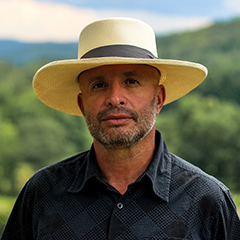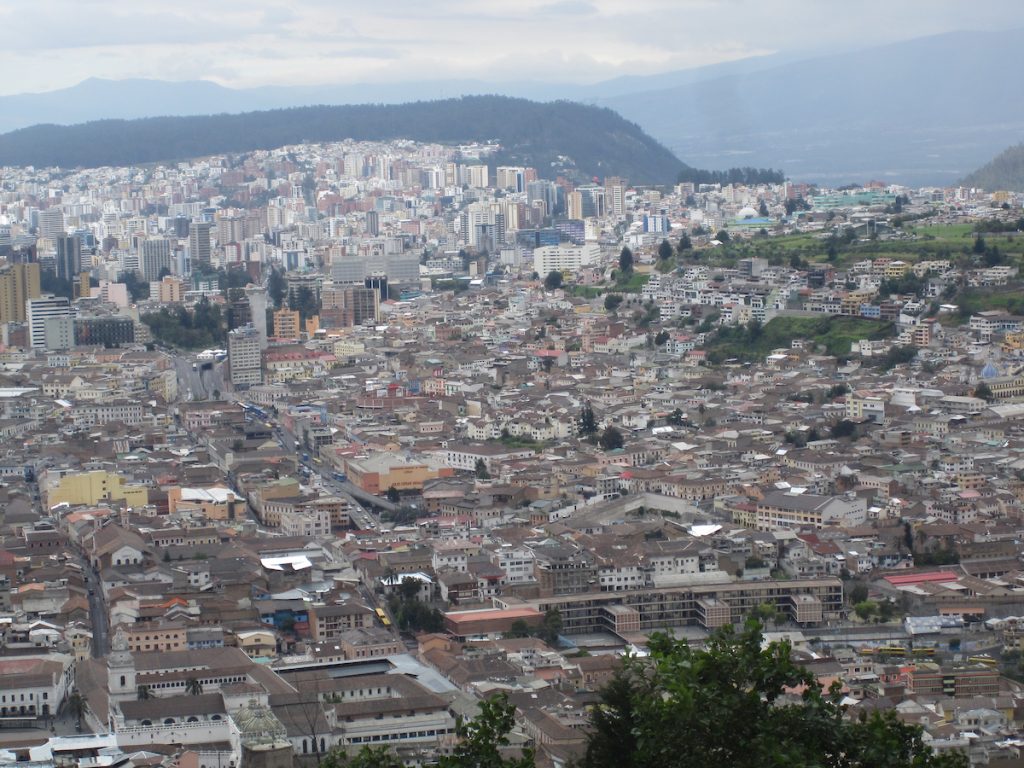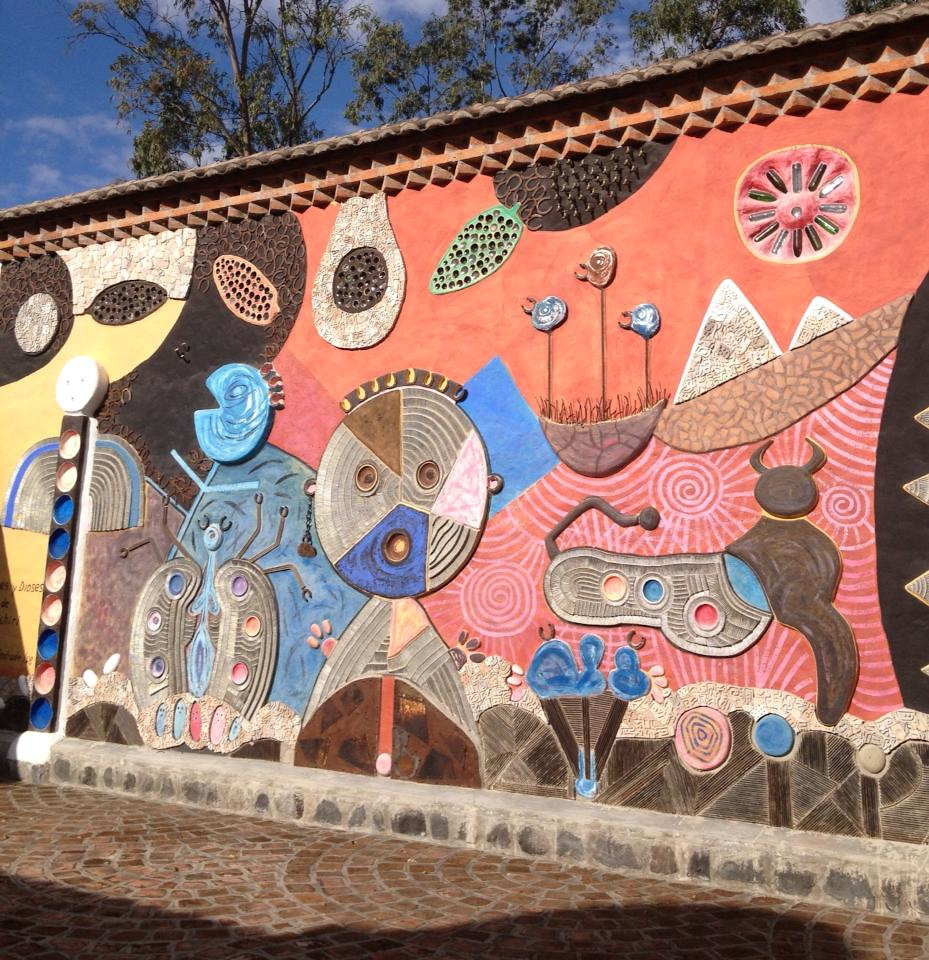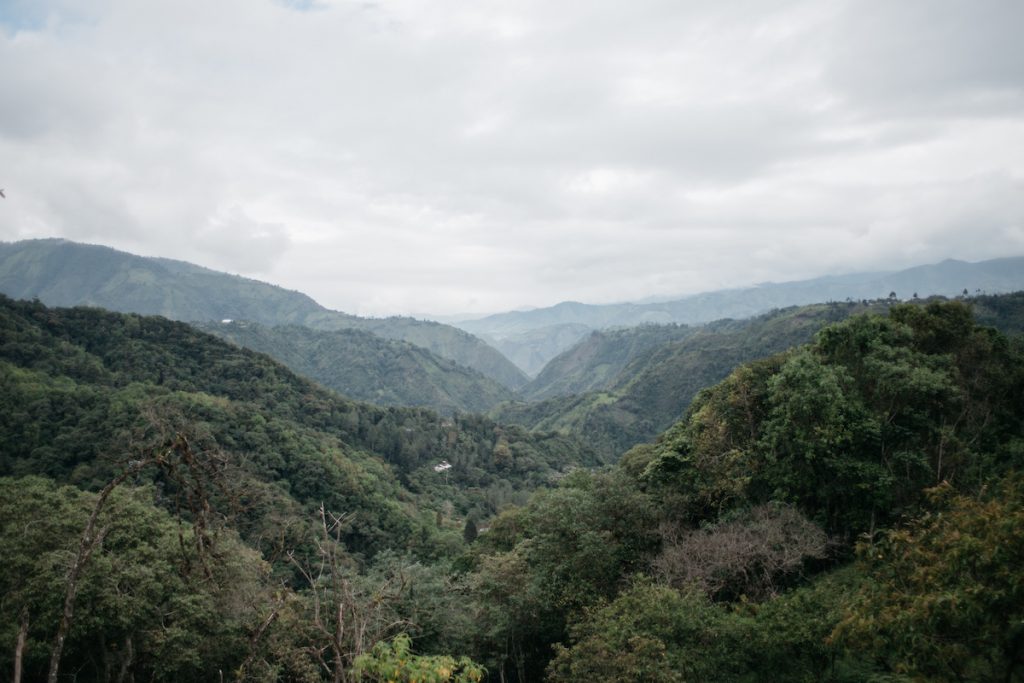A historical perspective puts Ecuador’s Indigenous protests into context
June 28th, 2022 | School for International Training

“The current struggle has deep historical roots, since the past was never forgotten and oppression has never ceased.”
By Fabián Espinosa
Fabián Espinosa is academic director of SIT Ecuador: Development, Politics, and Languages
On April 8, 1872, Dakilima Apu was executed in the central Andean province of Chimborazo, accused of leading a rebellion against the García Moreno regime. Condemned to forced labor, the Indigenous Kichwa rebelled against the Ecuadorian state then and numerous times since.
The wars of independence that led to the creation of different states in Latin America did not imply the recognition of Indigenous peoples as citizens of the new republics, but rather, the consolidation of an ethnic paradigm imposed by Spanish colonizers based on the exploitation and exclusion of both the Indigenous population and the descendants of enslaved Africans.

As Peruvian decolonialist Aníbal Quijano states: “The new independent state in Latin America did not emerge as a modern nation-state. It was not national regarding the great majority of the population, and it was not democratic. It was not sustained by, nor did it represent, a citizen majority. It was a faithful expression of coloniality of power.” (El movimiento indígena y las cuestiones pendientes en América Latina)
Dakilima Apu’s final words, Shuyay, mana kiwaychu ñuka churi (“Wait without despair, my children”) were indicative of historical consciousness, the key feature of the political mobilization of the Indigenous people in Ecuador then and now.
This month, a new uprising was declared after the government failed to respond to demands made by CONAIE (the Confederation of Indigenous Nationalities of Ecuador) in August 2021, when the pandemic became a pretext for advancement of the government’s neoliberal agenda. The devastating effects of such policies on popular sectors and on Indigenous territories are well known: a sharp reduction in social investment; an expansion of extractive industries; a rolling back of labor rights; and the strong possibility of elimination of subsidies and privatization of strategic public entities.
Institutionalized corruption, growing social inequity, and a humanitarian crisis associated with a prison system that has taken the lives of hundreds of inmates have also contributed significantly to social discontent.
The new independent state in Latin America ... was not sustained by, nor did it represent, a citizen majority. It was a faithful expression of coloniality of power.
Peruvian decolonialist Aníbal Quijano
The protest has been met with intense repression. Vast areas of the country have been militarized. The suspension of civil liberties and the temporary detention of Leonidas Iza, the president of CONAIE, have worsened the situation. As of this writing, five people have been killed, eight have dissappeared, 145 have been injured, 127 have been detained, and 11 repressive operations have been carried out in the provinces.
Special interest groups have taken advantage of the social unrest to generate chaos, confusion, and violence. Some political actors are calling for the impeachment of President Guillermo Lasso, but it remains to be seen if there are enough votes in the National Assembly.

This current struggle has deep historical roots, since the past was never forgotten and oppression has never ceased. The so-called Indigenous question reveals how Ecuador, and states throughout Latin America, accept a single citizenship but not multiple nationalities. While citizen protection is supposed to be granted to all Ecuadorians, not even civil rights protect the Indigenous.
The struggle has taken different shapes over the decades, depending on the nature of the oppression. During the 1940s, the struggle was agrarian. Indigenous cooperatives and unions emerged, supported by the Communist and Socialist parties. The Cuban Revolution in 1959 influenced the Indigenous political platform by reinforcing the priority of access to land. Years later, the progressive sector of the Roman Catholic church, often labeled Liberation Theology, promoted community-based organizations in the context of self-determination.
Eventually, new concepts and strategies in the political struggle led to the creation of ECUARUNARI (Ecuador Runakunapak Rikcharimuy / The Awakening of the Ecuadorian Kichwa). The name of the organization defined—through language, a clear indicator of cultural identity—a historical belonging to a specific people, the Kichwa, while also expressing the will to redefine their relationship with the Ecuadorian state.
During this process, a set of ideas emerged in the Indigenous consciousness: the need to develop well-defined, contemporary, and realistic concepts to comprehend and explain the situation of Indigenous peoples while reaffirming their hopes and claims. The concepts of nationality and a plurinational state were subject to debate, consensus, and approval.
This meant reclaiming the name, language, culture, geographical framework, economic, and social practices of each Indigenous group (Kichwa Runa, Shuar, Achuar, Shiwiar, Ba’i, A’i, Tsachila, Chachi, Awa, Waorani, Sapara). A sense of renewal and empowerment permeated Indigenous organizations at the community and national levels. But most importantly, this process revealed the weakness of Ecuadorian democracy.

In 1986, CONAIE was formed. The political mobilization of the Indigenous people reassigned new meaning to traditional power and knowledge. As Ecuador theorist Prof. Ileana Almeida points out, Indigenous people were expressing themselves as historical communities.
The main demand of the Indigenous movement was the declaration of Ecuador as a plurinational state. In social terms, this means expressing the transformation not as multiculturalism—the naïve or innocent celebration of difference and diversity. In sharp contrast, a plurinational state is defined by interculturality, which is linked to the geopolitics of space, the historical and current struggle of Indigenous peoples and descendants of enslaved Africans, and to the construction of a social, cultural, political, ethical, and epistemological project aimed at decolonization. In other words, it entails another system of knowledge, another political practice, another society, another way of thinking and acting in relation to and against modernity/coloniality.
A set of ideas emerged in the Indigenous consciousness: the need to develop well-defined, contemporary, and realistic concepts to comprehend and explain the situation of Indigenous peoples while reaffirming their hopes and claims.
“The Indigenous movement and its discourse on interculturality has nothing to do with naïve fantasies of utopic policies of harmony and mutual tolerance,” writes linguist Michael Handelsman. “A truly democratic society must develop new mechanisms and spaces of interaction between its diverse nationalities.”
In 2007, a Constituent Assembly was established in Ecuador. By drafting Ecuador’s 20th Constitution, the social movements had an extraordinary opportunity to implement long-awaited state reform. CONAIE’s proposal reflected a consensus reached after decades of political struggle. It included the fundamental concepts of a plurinationalstate: interculturality, sovereignty, participatory democracy, nature as subject of rights, and the implementation of an alternative paradigm to development known as Sumak Kawsay (plentiful life in harmony with nature.
The main demand of the Indigenous movement was the declaration of Ecuador as a plurinational state.
Reactionary sectors of the Ecuadorian society conducted an aggressive campaign against this new Constitution, accusing the Indigenous and other social movements of separatism and radicalism, and the state has failed to follow through on its constitutional commitments.
By continuing to identify themselves as nationalities with collective rights, and by proposing other notions of nation and democracy, the Indigenous peoples of Ecuador are challenging the multicultural frame of global capitalism.
As Prof. Catherine Walsh of Universidad Andina Simon Bolivar in Quito points out, interculturality “questions and defies coloniality of power while making visible and problematic the colonial difference … [It] offers a way of thinking from difference to decolonization, and in the long term, the construction of a radically different society.”
